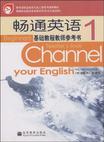畅通英语基础教程教师参考书1
2005-4
高等教育
[英]H.Q.Mitchell
262
为了深入贯彻《中共中央国务院关于深化教育改革全面推进素质教育的决定》,进一步落实教育部等7部门《关于进一步加强职业教育工作的若干意见》,全面实施《2003-2007年教育振兴行动计划》,推动职教教材多样化发展,教育部制定了《2004年-2007年职业教育教材开发编写计划》。计划内的教材出版后将向全国职业学校推荐选用。 《畅通英语》系列教材是上述教材开发编写计划中的一种,是在英国MM出版公司2003年出版的CHANNELYOUR ENGIASH的基础上改编而成的.本套教材既保留了原版教材新颖的教学设计模式和先进的教学理念,又结合中国高职高专英语教学的实际,增编了适量的辅教辅学内容和练习。本套教材可供五年制和三年制高职高专学生使用。 《畅通英语》以真实的交际型语言活动为基础,按照语言表达的难易程度分级编写,注重语言应用能力培养.从初级到中高级的英语学习全过程都有效地整合了听、说、读、写、译5种语言技能训练。该书布局系统全面、科学合理,将功能、语法、词汇、语音和跨文化交际技能尽收其中,利于教师按照语言学习和应用的规律有效地安排教学内容与进度,既提高学习者兴趣,又锻炼学习者能力,使所学内容与涉外交流、人际交往的真实话题和场景紧密结合,反复强化,达到学、练、用合一的理想效果。 本套教材的特点主要体现在如下几个方面: 教材内容贴近日常生活.真实生动.丰富有趣。学习者在生动的多元文化环境中,学习语言,掌握技能。教材中阅读文章题材广泛,例如,不同国家的节日介绍、中国属相介绍、心理测试、神秘的JFO等。其次,题材大多是学习者感兴趣的话题,如学习工作、休闲娱乐、求职指导、服饰打扮、饮食喜好、旅游探险、真诚友谊等。教材话题内容全面,覆盖诸多领域,如科技、网络、文化、社会、人物、经济、文摘、广告、说明等,使学习者在不同场合能够充分感知语言环境,掌握语言技能,加以强化操练,便可表达自如。 图文并茂.新颖实用.词汇学习尤有特色.教材配有大量与各种功能相关的富于启发性的图片,为语言学习者提供了形象的训练情景,有效地培养学习者对语言的领悟能力。以话题为中心归纳、学习、使用和积累词汇,有趣而实用。
《畅通英语基础教程教师参考书1》针对主教材每单元中的各项练习给出了练习目的、操作步骤、语言点注释、听力文字材料、练习答案等。同时,《畅通英语基础教程教师参考书(1)》还增编了“文化背景知识介绍”、“语言点注释”和“课文参考译文”等。 《畅通英语基础教程教师参考书(1)》还包括《中级教程学生练习册l》的所有练习答案及补充练习的答案。
前言Introd UctionTeachers referenceUnit 01 Nice to meet yo UUnit 02 Home and abroadUnit 03 My favo Urite thingsUnit 04 Whose are these clothes?Revision 01-04Unit 05 Upstairs downstairsUnit 06 Work and leis UreUnit 07 LifestylesUnit 08 In townRevision 05-08Unit 09 What wo Uld yo U like?Unit 10 April showersUnit 11 How m Uch is that?Unit 12 Yo U can do it!Revision 09-12Unit 13 Looking backUnit 14 Techno worldUnit 15 Not my l Ucky dayUnit 16 Pack yo Ur bagsRevision 13-16Additional referenceWorkbook (Teachers Edition)Unit 01 Nice to meet yo UUnit 02 Home and abroadUnit 03 My favo Urite thingsUnit 04 Whose are these clothes?Revision 01-04Unit 05 Upstairs downstairsUnit 06 Work and leis UreUnit 07 LifestylesUnit 08 In townRevision 05-08Unit 09 What wo Uld yo U like?Unit 10 April showersUnit 11 How m Uch is that?Unit 12 Yo U can do it!Revision 09-12Unit 13 Looking backUnit 14 Techno worldUnit 15 Not my l Ucky dayUnit 16 Pack yo Ur bagsRevision 13-16Key to s Upplementary exerises
1.weather In Britain:The weather in the United Kingdom is sochangeable that it provides people with theforever classic topic.If you want to pick up aconversation with some strangers on the trainor in the waiting hall.it never goes wrong if youbegin with" Nice day,isnt it?"or…It s really acold day today."2.Paid Holiday:Most British people have four or five weeks paidholiday a year.In addition.there are 8 days thatare public holidays(known as Bank Holiday)andmany of these fall on a Monday,giving people along weekend.In Britain,so many people driveto another part of the country,especially thecoast.on Bank Holiday weekends.3.Bank holiday:It is an official public holiday in Britain,not aSaturday or Sunday,when banks and mostbusinesses are closed,especially one in the spring(Spring Bank Holiday)and one in August(AugustBank Holiday,also called Late Summer Holiday).These two holidays are always on a Monday(BankHoliday Monday).and the weekend when theytake place is known as a bank holiday weekend.4.Popular Holiday Places:In Britain.many people like to go to the seasidefor holidays.There are places near the sea,suchas Blackp001.Scarborough and Bournemouth.People also like to go to the country,especiallyto walk.in places like Scotland,Wales and theLake District.TvVhen they go abroad,they usuallywant to go somewhere warm like Spain and otherplaces in southern Europe.For skiing,peopleoften go to the Alps.1.Its sunny/cloudy/windy/rainy/snowy.These are descriptions for weather.usuallyanswers for the question" Whats the weatherlike?The nouns for weather can become adjectivesby adding"v"at the end the words.Like:sun-sunnycloud-cloudy wind-windy rain-rainy snow-snowy2.What’s the weather like?How about the weather?What kind of weatheris there?”Whats/Whatre…like?”is used to ask forinformation about something.e.g.1)-What’s the school like?-Its very big and beautiful.2)-Whats Jim like?-He.s a nice guy.3.Put your coat on then.Im wearing it...Pay attention to the different usage of"put on"and "wear".They both can mean"to carry orhave on the person as covering”.but"put on"emphasizes the action itself while”wear"emphasizes the state after the action.e.g.Put that sweater on.Its cold outside.Mary always wears jeans.All the people are wearing raincoats.Itsraining outside.We.d better put on ourraincoats,too.4.Anyway,how’s Paul?Let.s stop talking about the weather.Iseverything OK with Paul?anyway adv.1)anyhowHere it is used to show a change of topic.e.g.Id like to have a cup of coffee now.Anyway,John is getting married next week.2)in spite of,in any casee.g.He doesnt like Susan,but he treats herpolitely anyway.
